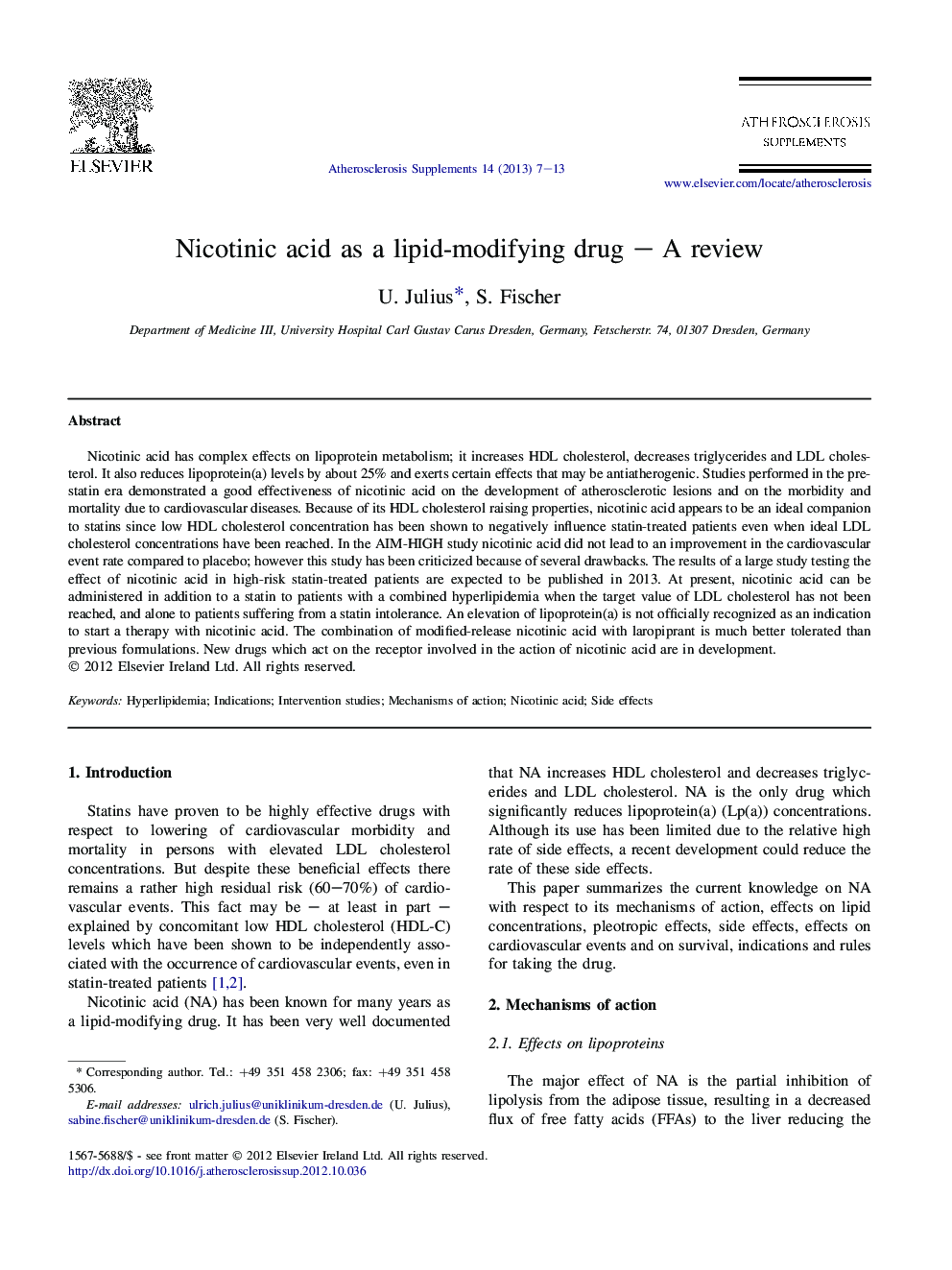| Article ID | Journal | Published Year | Pages | File Type |
|---|---|---|---|---|
| 2895625 | Atherosclerosis Supplements | 2013 | 7 Pages |
Nicotinic acid has complex effects on lipoprotein metabolism; it increases HDL cholesterol, decreases triglycerides and LDL cholesterol. It also reduces lipoprotein(a) levels by about 25% and exerts certain effects that may be antiatherogenic. Studies performed in the pre-statin era demonstrated a good effectiveness of nicotinic acid on the development of atherosclerotic lesions and on the morbidity and mortality due to cardiovascular diseases. Because of its HDL cholesterol raising properties, nicotinic acid appears to be an ideal companion to statins since low HDL cholesterol concentration has been shown to negatively influence statin-treated patients even when ideal LDL cholesterol concentrations have been reached. In the AIM-HIGH study nicotinic acid did not lead to an improvement in the cardiovascular event rate compared to placebo; however this study has been criticized because of several drawbacks. The results of a large study testing the effect of nicotinic acid in high-risk statin-treated patients are expected to be published in 2013. At present, nicotinic acid can be administered in addition to a statin to patients with a combined hyperlipidemia when the target value of LDL cholesterol has not been reached, and alone to patients suffering from a statin intolerance. An elevation of lipoprotein(a) is not officially recognized as an indication to start a therapy with nicotinic acid. The combination of modified-release nicotinic acid with laropiprant is much better tolerated than previous formulations. New drugs which act on the receptor involved in the action of nicotinic acid are in development.
